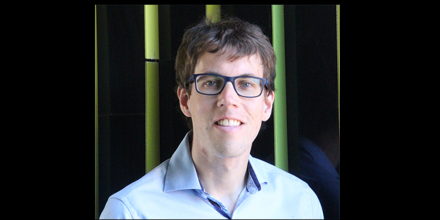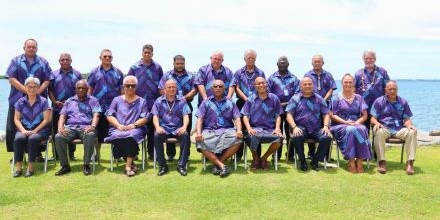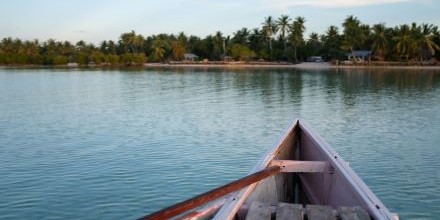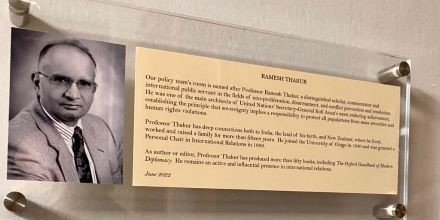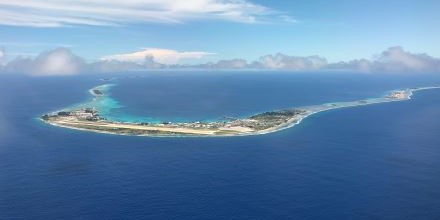International Award for Dr Tobias Ide
Mar 2023 - News
Dr Tobias Ide, a Toda Peace Institute expert contributor, has been awarded the first International Science Prize 2023 from the Hans Günter Brauch Foundation on the theme Climate Change and Conflicts. The award was given for Dr Ide’s book: Catastrophes, Confrontations and Constraints – How Disasters Shape the Dynamics of Armed Conflict published by MIT Press, 6 June 2023. Dr Ide is Senior Lecturer in Politics and International Relations, Murdoch University (Perth, Australia). He also holds appointments as a Specially Appointed Professor for Peace and Sustainability at Hiroshima University and as Adjunct Associate Professor for International Relations at Braunschweig University (Germany). He received his BA and MA from Leipzig University, his PhD from Hamburg University (2015), his advanced PhD (Habilitation) from Braunschweig University) 2019. The award ceremony will take place on Friday, 14 July 2023, in the Alte Mälzerei in Mosbach (Germany). The Prize consists of a certificate and a prize money of 3.000 Euros. The prize will be awarded annually in Mosbach (Germany). Dr Ide’s publications for Toda Peace Institute are: Policy Brief 80 Quantitative Climate-Conflict Research: Limitations and Prospects of Alternative Approaches What Do We Know About Climate Change, Peace and Conflict? The Age of Intersecting Crises? Environment, Peace and Conflict Research: The Need for Constructive Dialogue Is climate change a threat to Australian security?
'Fracture is history' - Pacific leaders commit to Forum reforms
Mar 2023 - News
The Pacific Islands Forum (PIF) is now "a family reconciled" as its leaders reaffirmed their commitment to reforms to strengthen the regional body. Following the recent PIF meeting in Fiji, Kiribati president, Taneti Maamau declared that, after two years of uncertainly, a new chapter of Pacific solidarity has begun. Read more in this story from Radio New Zealand International Image: Pacific Islands Forum
Kiribati Embarks on 'Island Raising' Plan
Dec 2022 - Policy Brief
An ambitious plan to raise parts of the islands of Kiribati by up to five metres to combat rising sea levels could cost billions of dollars. Former President Anote Tong, who has backed the idea for years, says it may be the country's only hope of keeping its sovereignty. Others are not convinced that this is the answer. Listen to a full report from ABC Radio Australia. (Duration: 4'46) Image: Kate Jean Smith, UNDP/Flickr
Ramesh Thakur Honoured by NZ High Commission in India
Dec 2022 - Policy Brief
The New Zealand High Commission in New Delhi, India, decided to name their Policy Room after someone with intimate links to both New Zealand and India, who had made a significant contribution to the development of New Zealand foreign policy and/or international policy. Although Toda Senior Research Fellow Ramesh Thakur has Australian citizenship acquired after he move to the Australian National University, he worked at the University of Otago for 15 years (1980–1994) and was officially in the UN system as a NZ national. The total number of names that were considered by the NZ High Commission in New Delhi is not known, but Professor Thakur's name was in the mix and the staff collectively chose him to be so honoured. We assume the selection was then cleared by the Ministry of Foreign Affairs in Wellington. The plaque was put up in June. Professor Thakur was in Kathmandu for a conference in late November and travelled from there to New Delhi, at his own expense, specifically and solely for the purpose of the formal unveiling on 27 November, at which the High Commissioner HE Mr David Pine officiated. Images: Supplied
Before It Is Lost
Nov 2022 - News
Toda's community and readers are very familiar with the impact of climate change in the Pacific. Toda has been researching and writing on this issue, and working with Pacific communities and partner organisations to amplify Pacific voices as they tell their stories to the world. Recently, UK newspaper The Guardian has run a series of essays from the Pacific islands about what might be, can't be and has already been lost to the climate crisis. Featured in this series are writers Kate Lyons on Tuvalu, Julian Aguon on Guam, Kathy Jetnil-Kijiner on Marshall Islands, Katerina Teaiwa on Banaba, and Lagipoiva Cherelle Jackson on Samoa. You can find the essays here. Image: Kwajalein Atoll, Marshall Islands - Edpats/Shutterstock
